The Best – and Worst – of 2021 in Documentaries
In this second installment of my wrap-up for the best – and worst – of 2021, I specifically look at documentary releases. And, considering how lame 2021 was for new narrative film offerings, all I can say is thank goodness for this movie genre, as it was far and away the cinematic saving grace of the year.
Unlike narrative features, where I struggled to come up with a Top 10 list, as I noted in my previous best and worst list blog entry, I had no such trouble with the documentary genre. In fact, this class of movies had so many excellent offerings that I had difficulty limiting myself. This was a refreshing change from 2020, when well-made documentaries were hard to come by. It’s interesting to note that even most of those that round out the bottom of this year’s documentary list were far from awful; they just weren’t as good as those that came out on top as this year’s stellar offerings (and I could only come up with 7 films that deserved to be on that list!).
I was also pleased to find that 2021’s documentary releases generally did not fall prey to the undeserved overhyped issue that befell many of their narrative counterparts. Those that were well received by critics were deserving of the accolades they were bestowed. It’s comforting to know that genuine integrity managed to persist in at least one segment of the film reviewing community in 2021.
Here’s what I believe are 2021’s best documentary offerings. Again, I have not seen absolutely everything that has been released in this genre (a virtual impossibility), but I have screened most of the leading contenders and have summarized my favorites – and least favorites – here. If there are documentaries missing from this year’s lists about which you’d like to know how I assessed them, please visit this site’s Quick Cuts page, which includes summaries of all of the 2021 releases I viewed.
The Top 10 Documentary Countdown
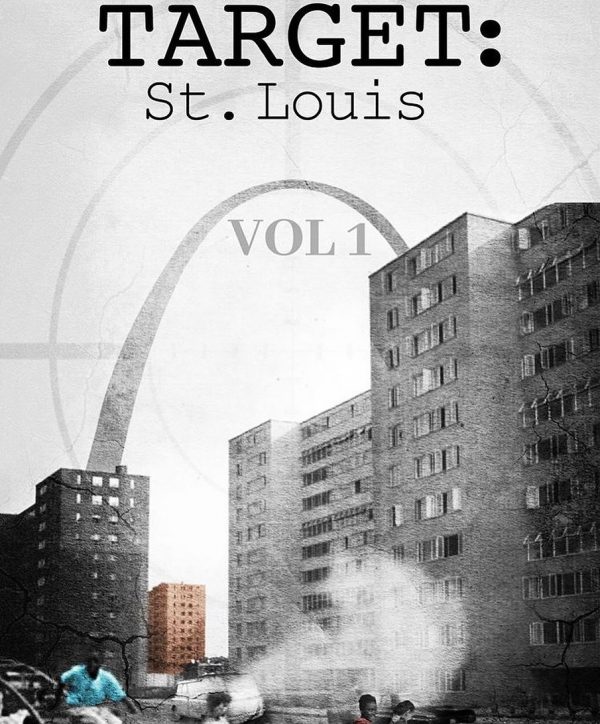
10. “Target: St. Louis Vol. 1” (USA)
If watching this damning indictment of reprehensible clandestine activities by the US government in the 1950s and ’60s doesn’t leave you thoroughly appalled, you must not have a conscience, a soul or a shred of humanity in your being. Director Damien D. Smith’s debut documentary feature tells the story of how the US military, in conjunction with various defense contractors, intentionally exposed residents of a predominantly African-American housing project in St. Louis to repeated open air dustings of toxic chemicals to determine what effects the substances would have on them, all without their knowledge or consent. The result was a host of serious illnesses, including rampant forms of cancer, that affected individuals at the time and many years later. What’s more, these practices were even revealed in the government’s own declassified documents, but, because of legal technicalities, victims were effectively unable to sue any of the parties involved. Through interviews with survivors of the testing, as well as researchers and advocates working to bring the truth to light, the filmmakers have produced a shocking release that is bound to leave viewers incensed about what transpired – especially when it’s revealed that this sort of deplorable Third Reich-style form of experimentation may be only one such example of what our government had done (or could still be doing). This is a powerful wake-up call to the atrocities of environmental racism, folks.
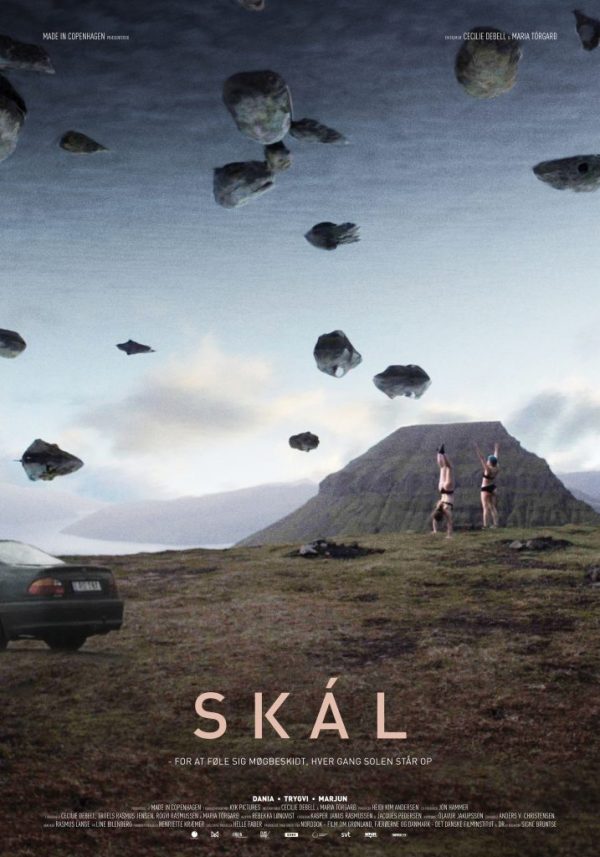
9. “Skál” (“Cheers”) (Faroe Islands/Denmark)
Though billed as a documentary, this captivating release plays more like a docu-drama or even a big screen version of reality TV. The film tells a modern-day Romeo and Juliet story of sorts about Dania, a young, aspiring poet from a conservative Christian community who falls for an outspoken, outlandish rap artist, Trygvi, whose shock-provoking lyrics are the antithesis of the values his once-sheltered girlfriend was raised with. Despite their differences and the pressure inflicted upon them through less-than-subtle parental misgivings, the couple steadily grows ever closer, especially as Dania becomes more comfortable in poetically expressing her conflicted feelings about genuine faith and the pitfalls of needlessly restrictive religious conventions. At the same time, the film also explores coming of age matters and issues a clarion call for the need for personal freedom and self-expression in an environment where such elements are fundamentally limited. Directors Cecilie Debell and Maria Tórgarð thus present an honest love story with deep spiritual and individualistic implications, narrative elements often lacking in similar offerings. The film’s truly breathtaking cinematography is a sight to behold, showing off the beauty of the Faroe Islands in ways seldom seen, combined with heartfelt, intimate depictions of personal moments, making for an unusual blend rarely featured in many movies, let alone those in the documentary genre. My only problem with this release is that so many of the most significant moments seem so perfectly captured that it almost makes me wonder about the validity of their authenticity, that they play more like scripted material than spontaneously caught events. That aside, though, this thoughtful, insightful release provides viewers with much to ponder, backed by gorgeous images and presented through a bevy of touching moments. What more could audiences ask for out of a documentary?
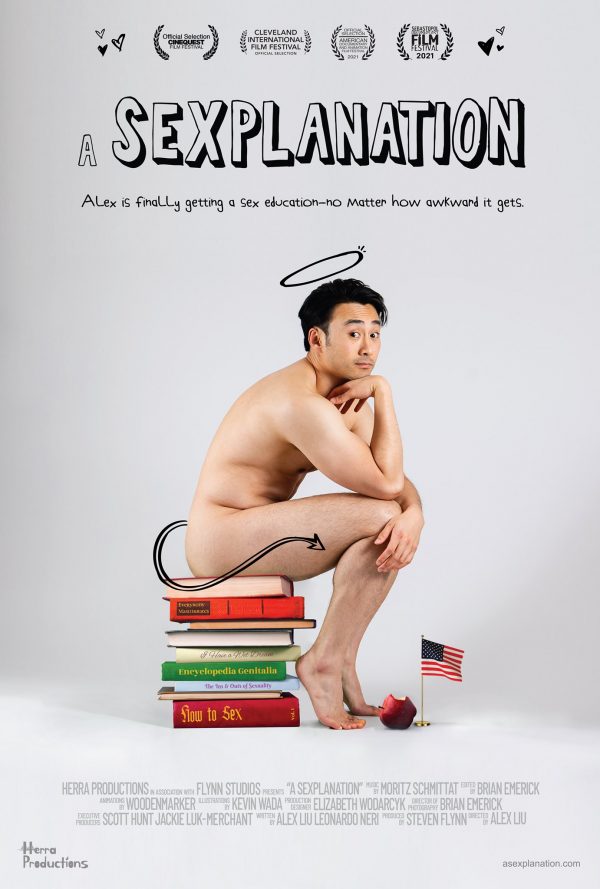
8. “A Sexplanation” (USA)
In a culture so pervasively obsessed with sex as ours is, it’s amazing that it’s simultaneously so hung up and ignorant about the subject. That’s an intriguing paradox filmmaker Alex Liu wanted to explore. So, at age 36, the gay Asian-American director decided to make a documentary about it, one that he hoped would shed some light on this for society at large, not to mention himself, too. As someone who grew up with a shameful outlook about sex, both in terms of his individual orientation and regarding the subject in general, he wanted to get to the bottom of this conundrum, especially in light of his apparently robust libido as an adult. In getting to the root of this matter, he interviews a wide range of experts on sexuality and those who have contributed to shaping our collective views on the subject, including researchers, educators, counselors, scientists and religious figures, as well as family members, friends, and everyday men and women on the street across all ages, ethnicities and sexual orientations. The result is an eye-opening cinematic experience, one that offers significant insights and enlightened solutions for addressing willful bashfulness and ingrained ignorance, all served up in a delightfully whimsical, frequently humorous offering punctuated with clever animation and frank though lighthearted conversations. The filmmaker’s debut feature is a real treat that leaves little to the imagination while pointedly but tactfully informing audiences on so many different fronts.
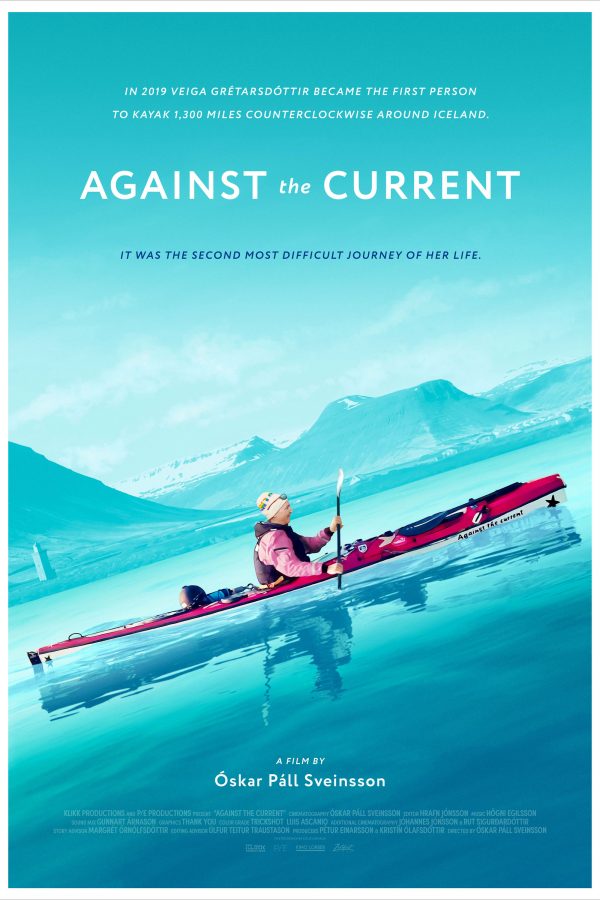
7. “Against the Current” (Iceland)
To truly prove ourselves, sometimes we must pursue goals that are seriously over the top, quests that most of us would view as seemingly impossible, possibly even foolhardy. So it was for Icelandic kayaker Veiga Grétarsdóttir when this courageous transgender athlete decided to circumnavigate her island home by traveling counterclockwise, going against the current. When asked why she would undertake such a dangerous and potentially deadly venture, she replied that she had been going against the current all of her life and that this felt like something she needed to do to help raise awareness for the transgender community and organizations that support it. What resulted from this 103-day endeavor, as chronicled in director Óskar Páll Sveinsson’s sensitive and gorgeously filmed documentary, is a journey of self-discovery on multiple fronts – and one not limited to the waters off the coast of Iceland. This offering is an inspiring and uplifting piece of filmmaking, one sure to stir the spirit, tug at the heart and encourage us all to fulfill potential we never knew we had.
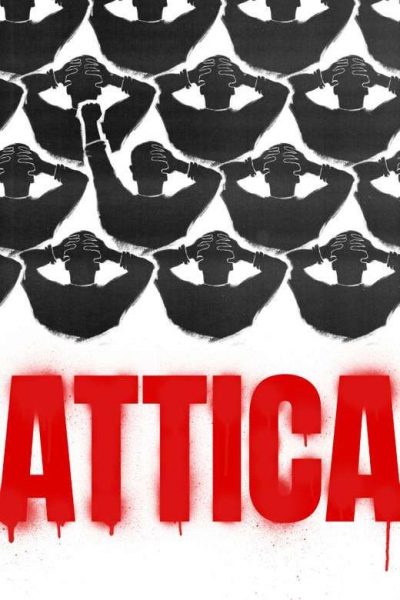
6. “Attica” (USA)
I’ll come right to the point about this searing documentary – it’s a very difficult watch, even for those with steely tolerance and sensibilities. Director Stanley Nelson’s chronicle of the five-day 1971 prison riot at New York’s maximum security Attica Correctional Facility holds nothing back, arguably the most graphic and uncompromising depiction of what turned out to be a horrific event for all concerned, the largest (and most deadly) such uprising in US history. The film thoroughly and meticulously explores what led to the incident and how it all unfolded through a wealth of archive footage and interviews with those who were there – inmates, government officials, members of law enforcement, journalists, negotiators, observers and relatives of those who lost their lives. While arguments might be made that the insurgents deserved what they got, as this film so pointedly illustrates, incarceration is no excuse for brutally and inhumanely treating criminals like animals, both during their imprisonment or in whatever punishment they receive for their actions. “Attica” exposes what happened with an unrelenting candor that sugarcoats nothing, revealing an unmitigated, wanton, largely racist assault by officials driven by retribution and a penchant for maintaining order at any cost, no matter how egregiously barbaric. Admittedly, the film could have benefitted from more material on what was learned from the experience and any developments or reforms that have come out of the event. But, on balance, this is a tragic history lesson and a damning indictment of rigid, unyielding, retributive law and order policies that can’t be condoned, no matter what the circumstances.
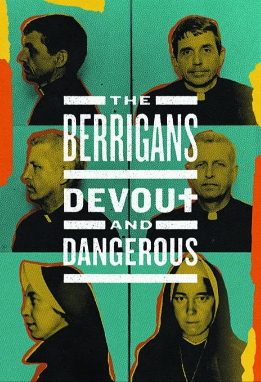
5. “The Berrigans: Devout and Dangerous” (USA)
Web site Trailer Blog [to come]
In times of war and great social challenges, it can be difficult to remain devoted to one’s principles – no matter how strongly we feel about them – when prevailing circumstances threaten to curtail our freedoms and our ability to express our feelings about them. Yet there are often courageous, unflappable individuals who refuse to let such conditions stop them, as evidenced by the protests led by activists Philip and Daniel Berrigan and Elizabeth McAllister. In this superb documentary about the lives of these three heroic figures (two priests and a nun who defiantly walked their talk when it came to their Catholic values), director Susan Hagedorn chronicles the efforts of these anti-war advocates who destroyed draft records as a means of protesting US involvement in the Vietnam War, as well as their subsequent activities in the civil rights movement and the early days of the AIDS crisis. They paid dearly for their actions, spending considerable time in prison, but they could not ignore their conscience in carrying out these acts of deliberate rebellion. Through a wealth of archive materials and contemporary interviews with family members and those who worked with them (such as actor Martin Sheen and Pentagon Papers whistleblower Daniel Ellsberg), these three activists brilliantly come to life, both as advocates for their causes and as compassionate, committed individuals, all captured in a highly personal way. This material is supplemented with voiceover narrations of the brothers’ writings read by Liam Neeson and Bill Pullman, adding an intimate and thoughtful dimension to their portrayals. We owe much to these virtuous champions, and this eminently moving tribute makes that abundantly clear.

4. “Julia” (USA)
Who would have thought that a middle-aged woman with a lilting voice and eccentric mannerisms would become a pop culture icon? But that’s precisely what happened with chef Julia Child (1912-2004), who brought the joy of cooking and eating into the mainstream at a time when most Americans gave it precious little thought. Through the publication of her seminal cookbook Mastering the Art of French Cooking and her myriad television appearances, she brought a new appreciation for the art of the kitchen into the lives of many, serving as meticulous instructor, courageous mentor and eclectic culinary tour guide. In the process, she also single-handedly gave birth to the television cooking show and lent ample credibility to the value of the struggling public television network. And, through it all, the public was treated to the antics of a truly American original, one whose animated and quirky presentation style was as delicious as what she was preparing in her kitchen. What’s more, audiences are introduced to Julia the individual, the secretary who worked for the OSS in Asia during World War II, the romantic who fell madly in love with her adoring husband, the activist who was an ardent voice for the pro choice movement and AIDS victims, and the generous supporter of aspiring chefs. Directors Julie Cohen and Betsy West serve up a sumptuous buffet of archive footage, recent interviews with friends and colleagues, and gorgeously filmed food that will send viewers on a beeline to the nearest gourmet restaurant upon leaving the theater. Fans of Julia and the art of cooking owe it to themselves to see this lovingly assembled tribute to an icon who accomplished and contributed so much and made it look easy – and fun.
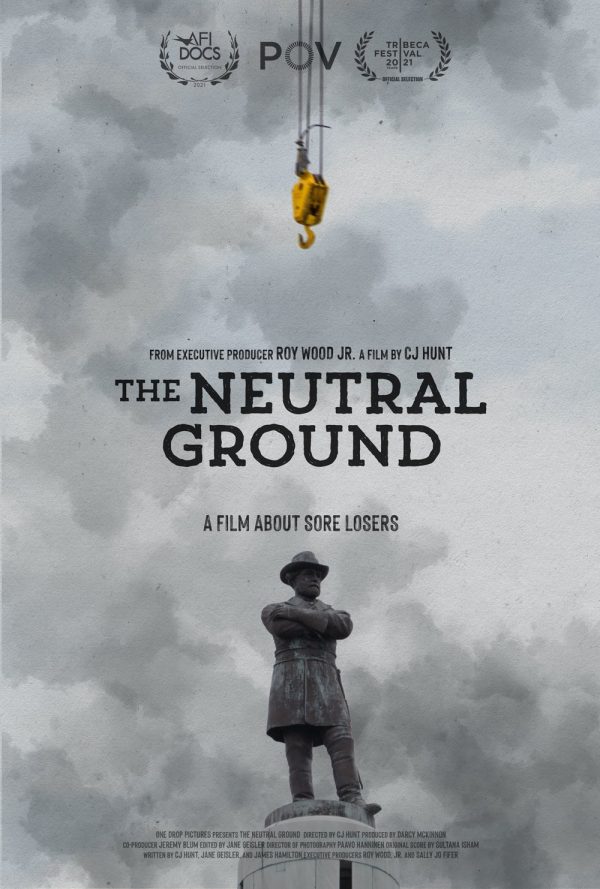
3. “The Neutral Ground” (USA)
Aptly subtitled “A Film About Sore Losers,” this superb debut documentary feature by director C.J. Hunt draws upon a modern-day Battle of New Orleans – one centered on the contentious removal of four statues glorifying the Confederacy approved by a vote of the city council – as a means to set the record straight behind what its proponents were actually commemorating with these landmarks, namely, the celebration of a failed social system based on sanctioned slavery and white supremacy. In exposing the false narrative that has kept this myth alive, sentimentally known as “The Lost Cause,” the filmmaker tells a story that’s both stunningly comic and utterly tragic. Hunt’s skillful questioning and editing techniques effectively blow the lid off the ignorance, cynicism and hypocrisy of those who still believe in the virtues of the losers of the Civil War and how their public symbols, such as the statues in question (and many others like them), perpetuate the values of a system that treated fellow humans as property and inferior beings. As the premiere episode of the 2021 season of the PBS series POV, this excellent offering is a fine viewing choice, both as a work of filmmaking and as an enlightening and educational vehicle that every American should see.
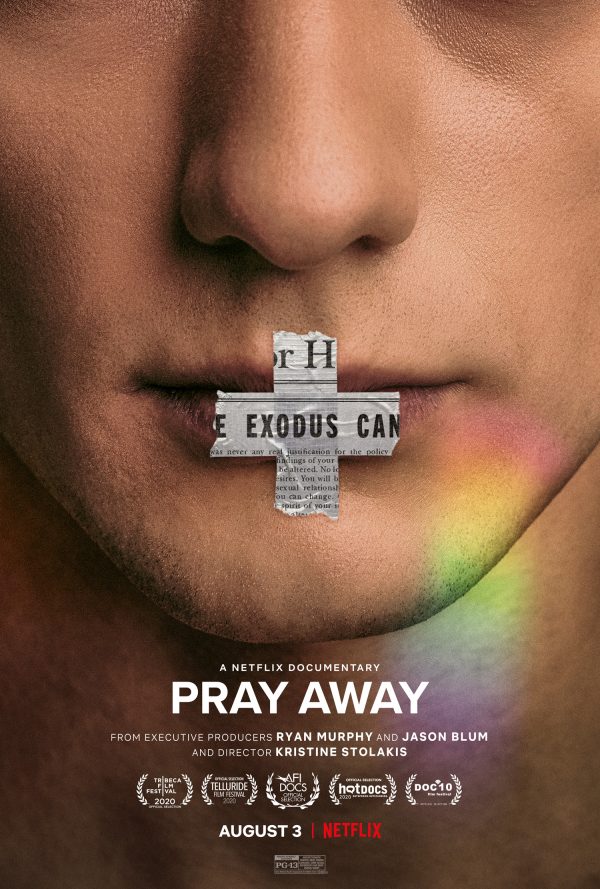
2. “Pray Away” (USA)
One of the most noble endeavors that documentary filmmaking can pursue is the exposure of reprehensible behavior. So it is in director Kristine Stolakis’s debut feature, a damning indictment of the practice of conversion therapy, a largely Christian-based program created by mostly undereducated “counselors” aimed at “helping” gay individuals renounce their orientation in favor of a “preferred” traditional heterosexual lifestyle. In depicting the psychological damage inflicted on therapy participants by so-called former gays (many of whom later abandoned their own counseling and later resumed their homosexual lifestyles), the director holds little back in shining a bright light on this horrific and unenlightened way of looking at life. Watching this film should rightfully infuriate anyone – gay or straight – for the unspeakable emotional atrocities perpetrated by this movement, which is neither helpful nor effective nor even Christian.
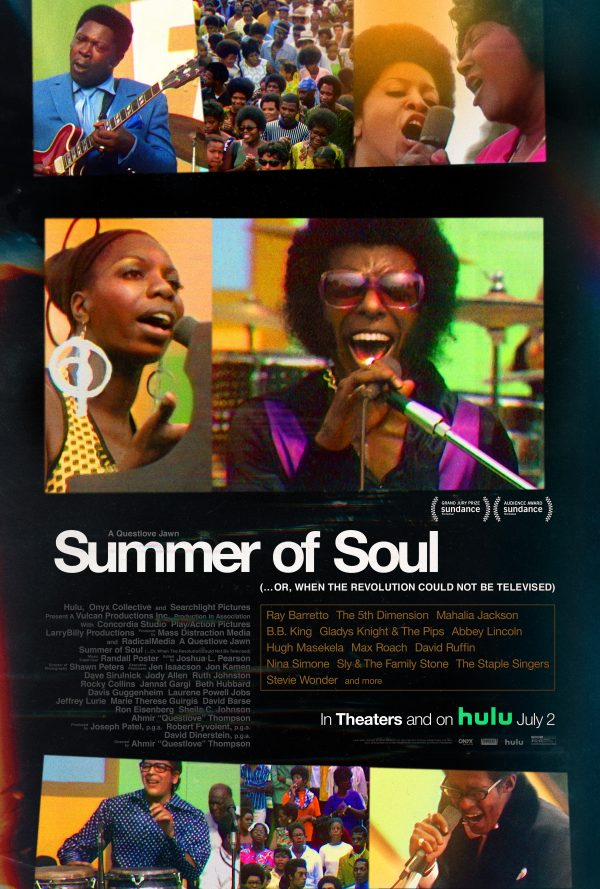
1. “Summer of Soul (…Or, When the Revolution Could Not Be Televised)” (USA)
During the summer of 1969, at the same time as Woodstock, another event of nearly equal magnitude took place in New York City, the Harlem Cultural Festival, a celebration of Black and Latino music, comedy and culture. And, like Woodstock, it, too, was filmed. Unfortunately, after the festival concluded, it was promptly forgotten, the film was stashed away, not to be seen, due to a lack of interest by distributors and television networks to make it public. Fortunately, that footage, which has been preserved in remarkable condition, has been resurrected, and the festival has been brilliantly brought back to life by this entertaining, educational and moving documentary. In this film, director Ahmir-Khalib “Questlove” Thompson has assembled an extraordinary selection of performances by the likes of Stevie Wonder, B.B. King, the Fifth Dimension, Gladys Knight & the Pips, Sly & the Family Stone, David Ruffin, Hugh Masekela, Nina Simone, the Staples Singers and Mahalia Jackson, to name a few. The performances are augmented by commentary from a number of attendees and performers, as well as contributors offering their insights on the festival’s social and cultural impact, including Chris Rock, Jesse Jackson, Al Sharpton, Lin-Manuel Miranda and Charlayne Hunter-Gault. The film is more than just an entertainment vehicle, though; it’s a time capsule into the period, examining the impact that the summer of 1969 had on Black culture, activism and empowerment. Questlove presents viewers with a tribute to the festival and the times, while simultaneously reawakening us to issues that still deserve attention all these many years later, pointedly reminding us that those who do not learn from history are destined to repeat it – and that we had all better be listening to more than just the music.
Honorable Mentions

11. “Ascension” (China/USA)
“The Chinese Miracle,” with its astounding economic growth in a relatively short time, has inspired awe around the globe, and the nation’s zealous adherence to “the Chinese Dream” has contributed significantly to that outcome. Similar in nature to the American Dream, the Chinese version is driven by a belief in hard work and dedicated diligence as a pathway to affluence. But, as director Jessica Kingdon’s excellent new documentary effectively shows, is that dream attainable or illusory? The film clearly depicts China’s relentless drive for perfection and success in all endeavors, showing how supposed opportunities for advancement are available at virtually all levels of the economy. However, do those opportunities genuinely translate into hoped-for outcomes, or are they merely ploys to squeeze out peak performance from naïve underclass workers who believe the promise and are willing to do whatever it takes to get ahead? Meanwhile, the film also illustrates the opulent degree of privilege that comes with wealth, but is this something that everyone can realistically share in, despite assurances to the contrary? The picture’s inventive cinematography, frequently backed only by the movie’s engaging score and minimal dialogue (an approach reminiscent of prior visually focused documentary works like “Koyaanisqatsi” (1982) and “Samsara” (2011)), shows more than tells in conveying these themes, immersing viewers in imagery designed to profoundly depict these intents. For all these strengths, though, the narrative tends to stray somewhat at times, especially toward the film’s end, but that’s easily overlooked in the picture’s overall context. What’s perhaps most significant, however, are the parallels between what’s transpired in China and what appears to be unfolding here in the US as it begins modeling itself more after its overseas competitor as a means to keep pace. And that should be a caution to all of us before we fall prey to illusory notions ourselves.
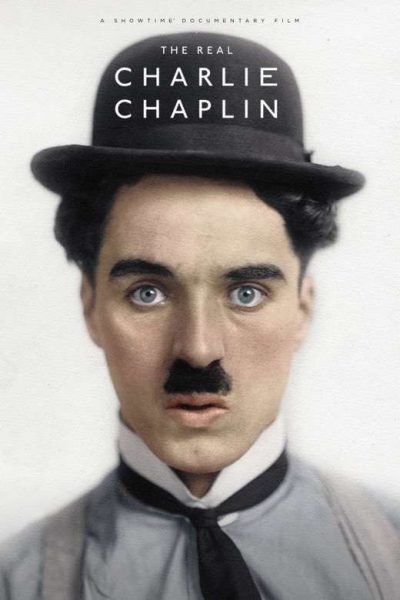
12. “The Real Charlie Chaplin” (USA)
Getting a handle on an icon can be a difficult challenge, especially when it’s one so simultaneously larger than life and enigmatic as film legend Charlie Chaplin (1889-1977). Yet directors Peter Middleton and James Finney do a more than admirable job of bringing “the little tramp,” filmdom’s first bona fide superstar, to life through this well-crafted tribute that balances the genius and the failings of its complicated protagonist, one who was both inscrutably reclusive yet right at home in the limelight. With a wealth of film clips, archive behind-the-scenes footage, interviews with those who knew Chaplin, and re-creations of significant events in his life and career, this made-for-Showtime documentary provides more than just a rote chronicle of the comedian’s life; it offers insight into how his work often reflected his early life in London’s working class underbelly, as well as how and why he was later often seriously misunderstood when it came to his progressive social and political viewpoints. The film is admittedly a little slow to find its traction at first, but, once it hits its stride, it’s a mesmerizing piece of cinema, one that’s sure to hold viewer interest, even among those who usually have little interest in silent movies. A surprisingly good work that exceeds expectations.
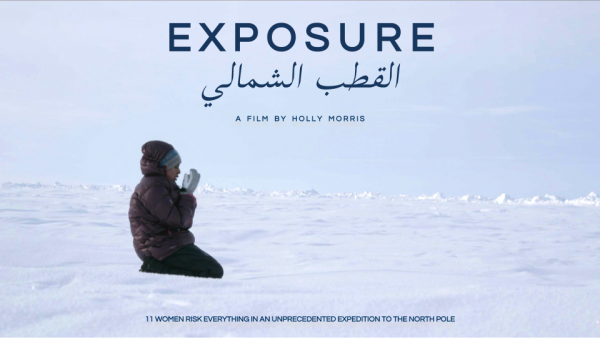
13. “Exposure” (USA/Iceland/Oman/Saudi Arabia)
Reaching the top of the world is far from an easy task, even under the best of conditions. But, in an era of climate change, in which the warming of the planet is causing the ice that must be traversed to reach the North Pole, that undertaking has become eminently more perilous. Director Holly Morris’s excellent, up-close documentary chronicles the 2018 adventures of an all-female expedition crew, detailing the challenges and dangers involved in such an inherently risky venture. This project, aimed at helping to draw attention to environmental issues and the possibilities afforded by women’s empowerment initiatives, is a historic one also in that it could well be the last of its kind due to the increasing dangers posed by such journeys. The film’s stunning cinematography and its highly personal treatment of the crew members’ individual stories makes this an intriguing and compelling watch about one of the planet’s last-remaining – and potentially fastest-disappearing – frontiers.
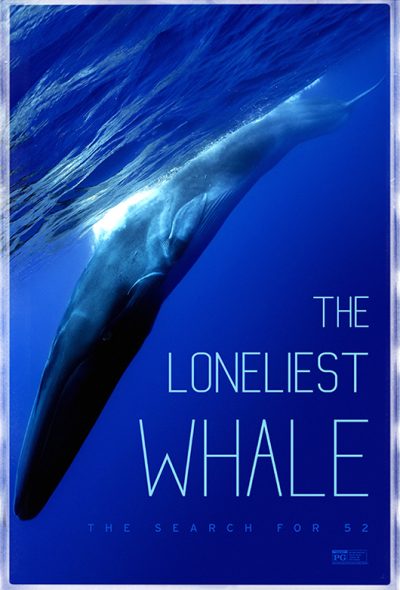
14. “The Loneliest Whale: The Search for 52” (USA)
The search for connection is something that we all understand, not only as a social practice, but also as a personal and collective need. So, when we hear about an individual who is unable to fulfill that requirement, we’re often saddened by this deficiency, regardless of whether this circumstance involves a human or some other creature. Such is the case for a believed-hybrid whale that sings its songs on a unique frequency, making it fundamentally unable to communicate with its peers and causing it to be labeled as the ultimate social outcast. This has thus led to the emergence of a mythology sentimentally celebrated in story and even song, all backed by an abundance of empathy for this loner of the deep, a creature that has come to be known as “the loneliest whale.” The search for this elusive cetacean provides the focus of filmmaker Joshua Zeman’s captivating documentary, which shares the story of this solitary specimen and the long-shot expedition launched to find it. The film generally tells the tale in a beautifully filmed and engaging manner, though it has unfortunate tendencies to slip off into tangents that are awkwardly introduced and to insert annoying, somewhat self-aggrandizing observations from the director/narrator, intrusions that needlessly impede the flow of the narrative. Nevertheless, this offering also draws a number of relevant and pertinent parallels between the human condition and that of the lonely whale and its kindreds, metaphorical parables that we had all better heed if we hope to save the whales – and ourselves.
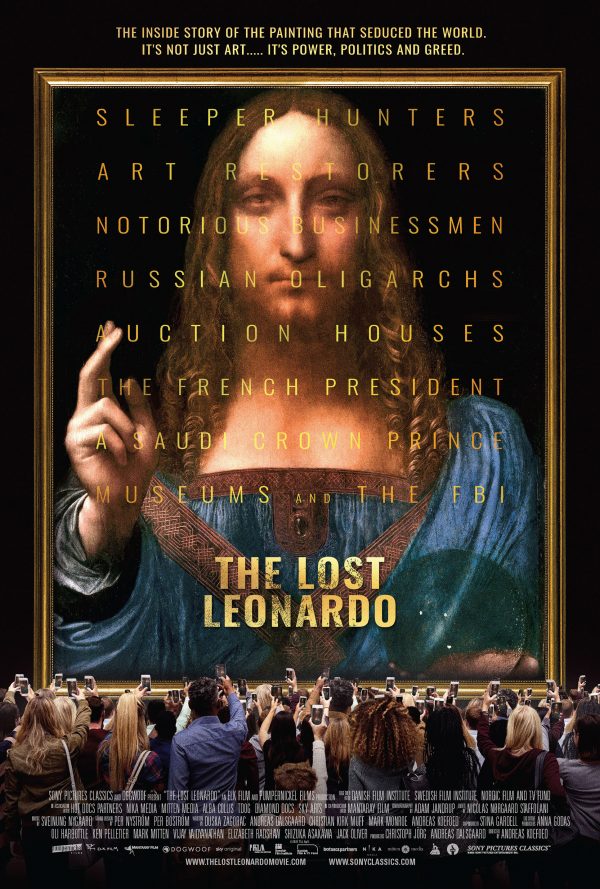
15. “The Lost Leonardo” (UK)
When a missing masterpiece allegedly surfaces, there’s tremendous celebration and supreme doubt. Is it legitimate or phony? That’s the question that was raised when Leonardo da Vinci’s believed-lost Salvatore Mundi surfaced, raising the possibility that a work by one of the world’s masters had been miraculously resurrected. There was considerable skepticism about its authenticity, and, once it was believed to be genuine, a firestorm over its future ownership arose, one that was riddled with shady monetary considerations and even concerns related to geopolitical capital. Such are the dynamics of director Andreas Koefoed’s superb documentary chronicling the events associated with this artistic find, told in the form of a mystery/thriller with intriguing twists and turns, along with an ante that’s continually upped, resulting in an auction price that fetched the highest amount ever paid for a work of art. Lovers of fine art and cinematic intrigue will no doubt enjoy this engaging and thoroughly entertaining work.
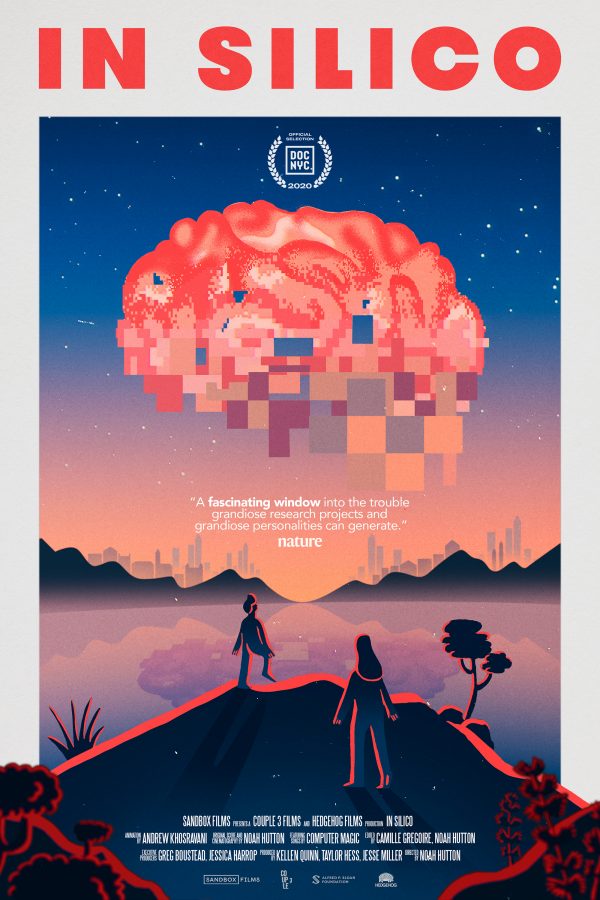
16. “In Silico” (USA)
The brain is a truly remarkable phenomenon of nature, but how much do we really know about how it was created and how it functions? Filmmaker Noah Hutton, a longtime student of neuroscience, always wanted to make a movie about the subject, and he found his inspiration after seeing a TED Talk by visionary researcher Henry Markram. The inventive investigator came up with a revolutionary proposal to design a computer-generated model of the brain to understand its workings, one created “in silico,” a scientific study approach that fuses biology and electronic technology. Hutton opted to follow Markram’s 10-year project to pursue that audacious goal, one launched with tremendous enthusiasm but one that also came under considerable criticism, particularly when monetary matters became involved. This engaging documentary details an array of highly technical topics in an easily relatable way, while also painting a candid portrait of the highly competitive (and sometimes less than civil) world of bidding for research funding. The film also examines “the big questions” of whether the study of these issues rightfully falls within the scope of science or philosophy (or some combination of the two) and whether such ethereally tricky conundrums can even be quantified or properly evaluated given our current level of knowledge and understanding. Hutton, Markram and other commentators give us all much to think about, and they do so in plainspoken terms, bringing the relevance down to an everyday level and not letting the subject linger in the realm of inaccessible theoretical speculation. Quite an impressive outcome for an ambitious decade-long film project.
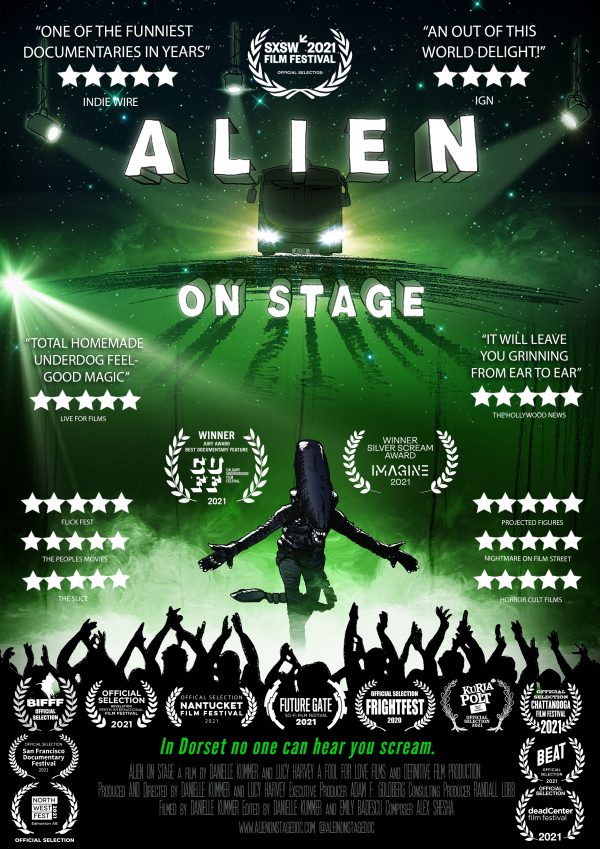
17. “Alien on Stage” (UK)
Web site Trailer Blog [to come]
When an amateur British theater company decides to do something different for its annual holiday charity production, the crew goes out on a limb to stage material that’s truly out of this world – a theatrical adaptation of Ridley Scott’s sci-fi cinematic classic, “Alien.” As audacious as this undertaking might be, however, the play’s initial run in the company’s hometown of Dorset is a flop. But, when the show catches the attention of documentary directors Lucy Harvey and Danielle Kummer, the company’s fates change dramatically. The filmmakers help the amateur troupe secure an opportunity to stage a performance of the play in London’s West End – and to a sold-out crowd at that. Thus begins this chronicle of an unlikely production brought to life both on stage and in this hilariously offbeat documentary. While the film could use a little more background about the principal players, this wickedly funny saga about a horror classic transformed into a campy romp provides meticulous behind-the-scenes detail, intercut with footage from the film original to provide context and comparison. Most of all, though, this is a fitting tribute to all the underdogs out there who are willing to stick their necks out and attempt the untried, all the while having fun and ultimately attaining unexpected yet much deserved success.
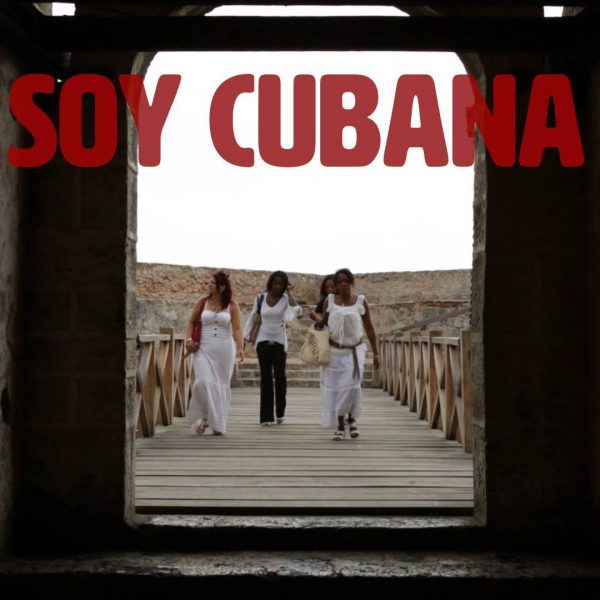
18. “Soy Cubana” (Cuba/USA)
How frustrating it must be to have talent – and a tremendous gift to give the world – only to be thwarted by bureaucratic red tape and needless, outdated government restrictions. So it has been for many Cuban artists looking to showcase their talents abroad. Fortunately, though, there have been some lucky breakthroughs, such as those that occurred during a narrow window from 2015 to 2017, when cultural exchange relations between the US and Cuba were briefly relaxed, enabling artists like the Vocal Vidas – a Cuban a capella quartet – to slip through a visitation window that allowed the talented foursome to give three performances in Los Angeles. The process was not an easy one to negotiate, as the window of opportunity was in the process of closing, but the Vidas were able to pass through in time, to the benefit of everyone who saw them perform live and to those viewing this documentary about their storied odyssey. Directors Ivaylo Getov and Jeremy Ungar have assembled a delightful chronicle of their journey, including footage of their performances, as well as the complex process of securing visitation visas to perform in the US. The film features ample footage of their singing, both in the US and Cuba, as well as insights into their respective lives, both as performers and as individuals struggling to get by in the fiscally strapped island nation. A truly delightful, uplifting, inspiring watch.
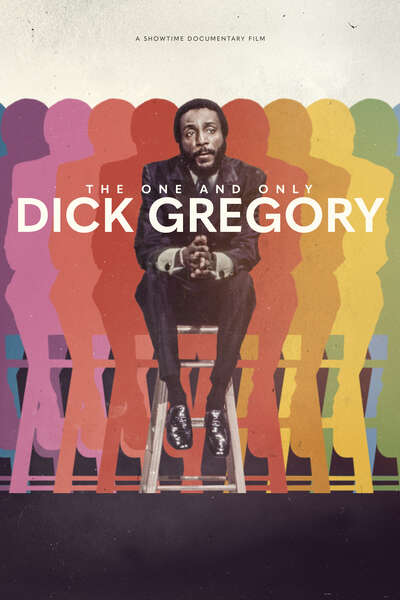
19. “The One and Only Dick Gregory” (USA)
Comedian/activist/health advocate Dick Gregory (1932-2017) lived quite an amazing life, as depicted in this detailed biography. With a wealth of archive footage of Gregory’s standup performances, his civil rights activism and his efforts to promote healthier living, backed by an array of interviews with those who knew him and performers whom he inspired, director Andre Gaines’s debut feature presents an in-depth look at this prescient icon’s storied life. In addition to appearances by Gregory’s wife, children, publicist and biographer, the film also includes insightful conversations with actor/comedians Chris Rock, Dave Chappelle, Kevin Hart, Wanda Sykes, Rob Schneider, Nick Cannon and Harry Belafonte. While the picture provides a thorough treatment of Gregory’s activism, it nevertheless could have placed a little more emphasis on his comedy, given that the clout he built up as a successful entertainer was what made his later, more meaningful work possible. That aside, however, this excellent offering provides viewers with a fitting tribute to a remarkable talent and an impressive human being who brought true meaning to the word – and practice – of integrity.
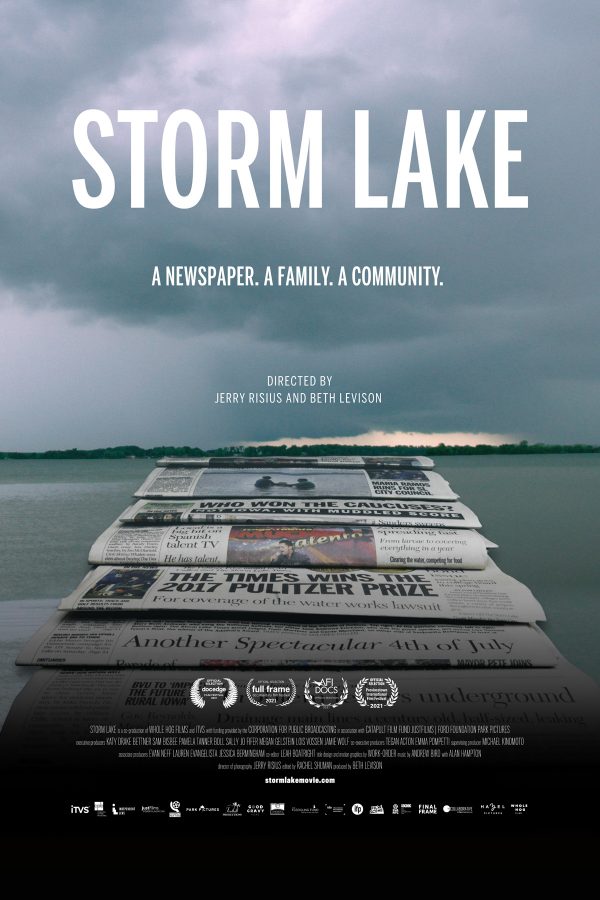
20. “Storm Lake” (USA)
In an age of ever-growing media consolidation and agenda-driven corporate journalism, it’s comforting to see that good old-fashioned reporting is managing to stay alive in small town newspapers like The Storm Lake Times, the subject of this endearing documentary. As publications of this type continue to disappear in droves, the public is losing the kind of personalized local coverage that we all need to stay informed about our communities. But, fortunately, periodicals like this family-owned, Pulitzer Prize-winning, twice-weekly Northwestern Iowa newspaper are sustaining the tradition, despite the deck being heavily stacked against them. Directors Beth Levison and Jerry Risius document the challenges and joys associated with keeping an operation like this alive, as well as the range of big and small stories that the paper covers, from the foible-filled 2020 Iowa caucuses to the COVID outbreak at a nearby meat packing plant to the crowning of grade school pig festival queens and grandma’s favorite recipes. As a former journalist, I must admit to being somewhat partial to material like this, but its heartwarming tone is genuinely engaging, presenting a slice of Americana that may be disappearing but that can still be savored through a cinematic experience like this. This film was the winner of the American Film Institute Documentary Film Festival’s Audience Award for best feature as voted on by event attendees.
Rounding Out the Bottom
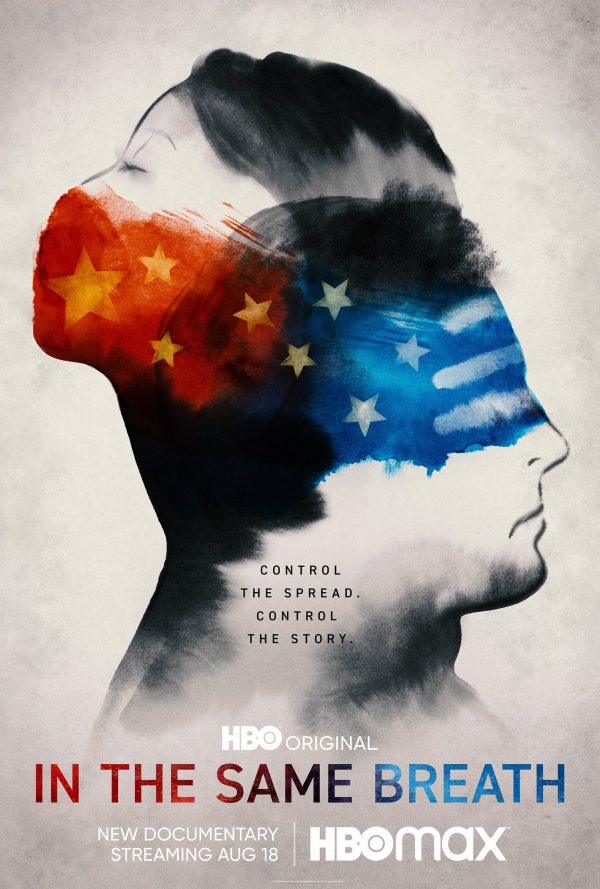
7. “In the Same Breath” (USA)
Making a documentary about the COVID-19 pandemic has got to be one of the most challenging ventures a filmmaker can undertake, especially given the fact that it’s still ongoing. What’s more, there are so many aspects to focus on that it’s undoubtedly difficult to know where to place proper emphasis. And, when one adds to that the ever-shifting sands of available and credible information (particularly from officials in China, site of the pandemic’s origin, and the US), it’s difficult to know what to believe. Such are the hurdles that director Nanfu Wang faced in making this film. Certain elements are sensitively and expertly handled, such as the impact of the pandemic on victims, their families and the health care workers tending to their needs, painfully sad segments guaranteed to move viewers to tears. However, the slope is considerably slipperier when it comes to addressing governmental responses to the virus. Is the ineffectual handling of the crisis due to incompetence, a lack of preparation and/or blind denial, or is something more nefarious at work, given the hardline, authoritarian, propagandist proclamations that, arguably, are being issued on both sides of the globe? On this front, the director seems less sure of herself, hedging her bets and seemingly holding back from saying what she really wants to say. That’s unfortunate given that Ms. Wang is generally not one to waffle, as previously seen in hard-hitting releases like “One Child Nation” (2019). Here, however, she seems to resist throwing down the gauntlet, an approach that dilutes her message – and weakens the film – at a time when a definitive perspective is needed more than ever.
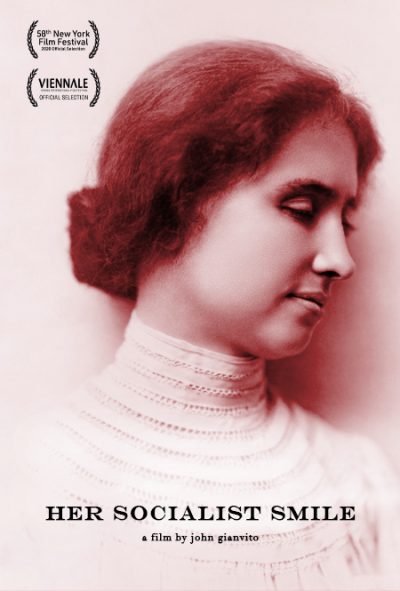
6. “Her Socialist Smile” (USA)
Sometimes you think you know someone and later find out that he/she turns out to be something totally different. So it is to a surprising degree with Helen Keller (1880-1968), the renowned blind and deaf author and lecturer who is perhaps best known for her work as an ardent advocate for those with disabilities. However, as director John Gianvito’s documentary about the iconic figure reveals, Keller was also a radical socialist, one who unabashedly lambasted the capitalist-militarist system and zealously fought for the rights of women, laborers, minorities and the impoverished. She championed the Russian Revolution and was a member of the International Workers of the World, actions that eventually brought her under surveillance by the FBI. This is not to suggest that she was unpatriotic, but she strongly felt that the American system was broken in many ways and needed to be significantly reformed to bring about fairness, justice and equality. Years later, however, when she saw how socialist ideals had been corrupted by parties like the Soviets, she backtracked somewhat, not from a theoretical standpoint but definitely from a practical one, a move that probably contributed to the downplaying of her prior views and her reputation as an activist social reformer. The film does a fine job in bringing all this to light, and its singularly distinctive approach makes this one of the most stylish documentaries to be released in some time. However, I can’t say I agree with some of the filmmaker’s stylistic choices, such as the use of lengthy quotes presented as on-screen graphics requiring considerable viewer reading – enough to try the patience of even those who generally feel comfortable reading subtitles. There is also some inconsistent treatment in the presentation of the material, keeping the film from striking a consistent tone and rhythm. In the end, “Her Socialist Smile” may prove eye-opening in many ways, and the path chosen for delivering those revelations may indeed be a distinctive one, but the overall production feels somewhat off-kilter as a piece of filmmaking, one whose noble attempts at doing something different don’t quite click as well as they could have.
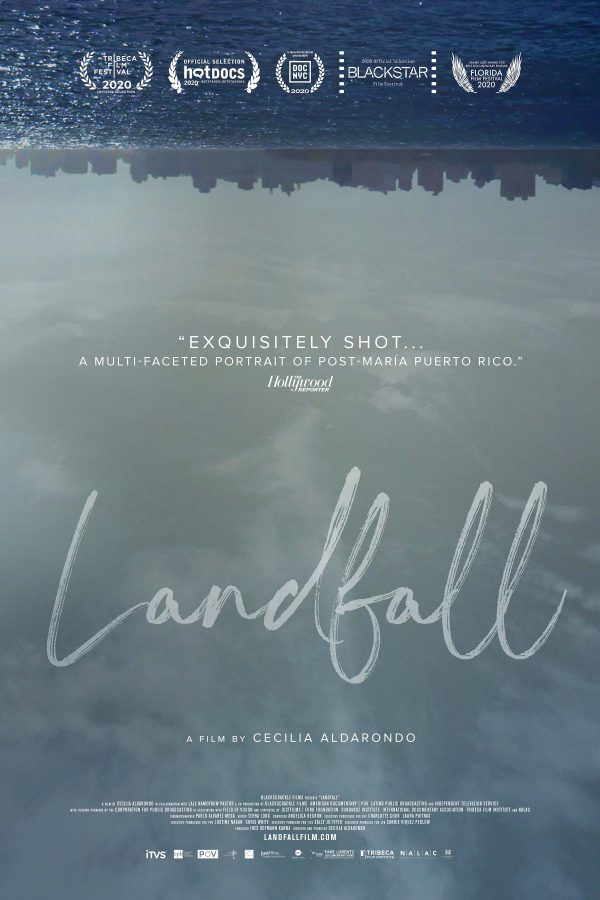
5. “Landfall” (USA)
When presenting a story on film, it’s generally more effective to show, rather than to tell, viewers what’s unfolding on screen. Unfortunately, this documentary about everyday life in Puerto Rico between the 2017 landfall of Hurricane Maria and the island’s 2019 ouster of its governor because of his ineffectual crisis response simply doesn’t get the job done. Director Cecilia Aldarondo’s second documentary feature consists of a lot of talk and not much in the way of compelling footage depicting the disaster that devastated the island and the suffering left in its wake. This is compounded by the inclusion of ample extraneous and unrelated footage, further diluting the narrative. What’s more, the film also places more emphasis on the territory’s economic, political and social services turmoil than on the storm, which, despite their profound impact (some of which had been going on before the hurricane hit), is difficult to depict (and doesn’t make for particularly engaging cinema). I believe there was a sincere intent here to tell the story of the twin calamities that have seriously affected Puerto Rico; the problem is that it just wasn’t carried out terribly effectively.
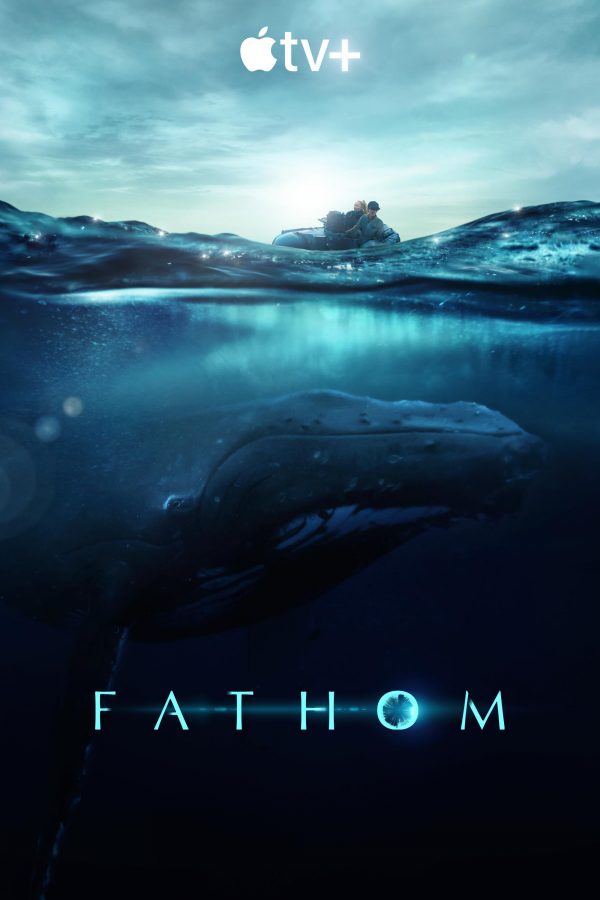
4. “Fathom” (USA)
As fascinating as the premise is, this documentary about researchers investigating the intricacies of humpback whale song communications fails to follow through on its mission. Director Drew Xanthopoulos’s second feature outing has lofty goals in its exploration of a subject that seeks to mix science, philosophy and even metaphysics, but the picture’s execution is mishandled, causing many of the film’s more engaging aspects to become obscured by excessive (and largely unexplained) tech speak, as well as uninteresting extraneous material that does little more than pad the content. To its credit, this offering is beautifully shot in the ocean wildernesses of Alaska and French Polynesia, backed by an ethereal score, and it truly shines when it delivers its profound conclusions through insightful voiceovers. Unfortunately, there’s too little of what works best and too much of what distracts viewers from the core narrative, and that’s regrettable considering that these wondrous creatures truly deserve better.

3. “White Coat Rebels” (USA)
Despite an intriguing premise, director Greg Barker’s latest documentary feature about medical professionals and med students seeking to reform the American health care system is a disappointingly unorganized offering in which its many insightful ideas are presented in a somewhat scattershot fashion, preventing them from being suitably developed as the narrative jumps around from topic to topic. Clearly this is a film that seeks to showcase the passionate efforts of committed idealists in exposing the impact that issues like poverty, racism and an uncontrolled profit motive have had in negatively affecting the quality of care that patients receive, not to mention the exorbitant costs involved as well. However, it seems that, just as one of those subjects is being introduced and developed, the thrust of the picture abruptly skips off in another direction, creating a less than coherent storyline. What’s more, due to the documentary’s shooting schedule (which began in 2019), the narrative does something of a left turn with the onset of COVID in 2020, changing the direction even further from how the film began, making for an even greater sense of overall discontinuity. This project is sorely in need of going back to the editing room for retooling to let the ideas raised in this production stand out better so that they receive the unfettered attention they truly deserve.
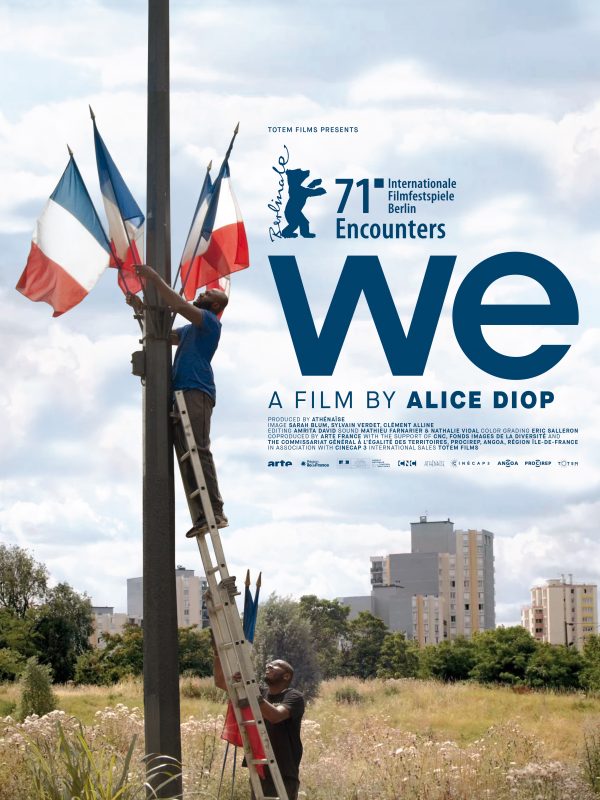
2. “Nous” (“We”) (France)
There are slices of life, and then there are slices of life. Director Alice Diop’s attempt at capturing one such slice is the stuff of this documentary that, unfortunately, is little more than a contrived exercise in trying to translate “Fanfare for the Common Man” into a cinematic experience. This offering seeks to elevate the everyday and ordinary to an exalted level of grandeur, but the subjects the filmmaker chooses are, for the most part, patently mundane and uninteresting. The link connecting them (and only marginally at best) is a train line that runs from north to south through the City of Paris. However, there’s precious little tangible connection between the subjects and the glue that supposedly binds them other than a few station shots and periodic glimpses of train cars running by in the background. The result is a failed, disjointed release that makes one long for when the credits will finally roll.
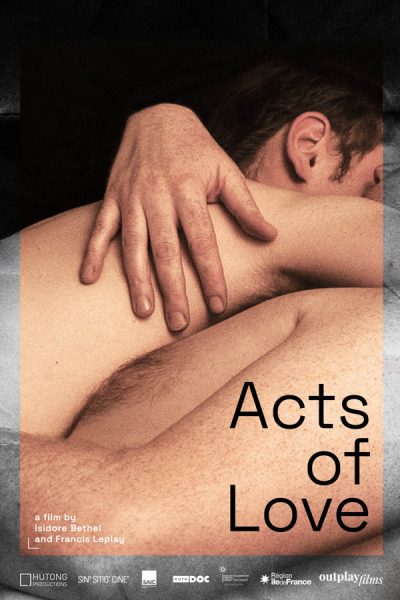
1. “Acts of Love” (USA/France)
When director Isidore Bethel’s relationship with an older man sours, he takes a break from things and relocates from Mexico City to Chicago to make a film that, from the very beginning of the production, has no apparent sense of direction. It’s a trait more than amply apparent in the finished product, too. And, as revealed in phone conversations during the course of the picture, the filmmaker’s mother absolutely hates it (and astutely so). This meandering stream of consciousness “documentary” consists mostly of director interviews and encounters with people off the street regarding matters of sex, love, intimacy and relationships, backed by musings of cluelessness and ennui, all linked by Mike Mills-styled bridge sequences. In the end, however, the picture essentially ends up being little more than a vehicle for potential hook-ups involving the filmmaker. There’s plenty of masturbation going on here, too, both of the intellectual kind and otherwise. Sadly, this is yet another example of pretentious, unfocused material erroneously being passed off as alleged high art. Thankfully, Mom sees through it all and doesn’t hesitate to call out her self-indulgent son, absolutely nailing it when it comes to assessing exactly what’s going on in this feeble excuse for a film. Indeed, as once again becomes apparent, “Mom truly knows best.”
Copyright © 2021-2022, by Brent Marchant. All rights reserved.



